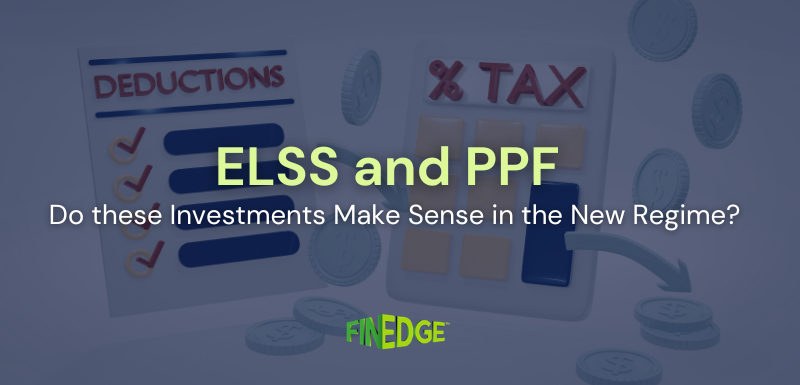Should you book profits in your Mutual Funds before March 31st?

Mutual Funds Sahi Hai”, says the impactful awareness campaign that has built up significant momentum in the past year.
However, the Union Budget 2018 served as a dampener for many investors, particularly first timers who invested into equity mutual funds purely for the tax efficiency of their returns. Now, we have a number of these investors frantically quizzing their advisors on whether they should book profits before March 31st, while they’re still tax free. What’s the right thing to do for investors currently? Here are a few factors to consider while deciding.
Markets are Down
It’s worth noting that the equity markets have had a bit of a poor run since the day of the Union budget, prior to which they had run up sharply. Having crossed the 11,000 mark at the end of January this year, the bellwether NIFTY index now trades nearly 800 points, or 7% down from those levels with Mutual Fund NAV’s falling by an equivalent, or for some categories such as mid cap funds, a higher degree.
This has two interesting ramifications. First, since the gains accrued up and until 31st January 2018 have been ‘grandfathered’ away, profit booking will be a moot point because only the profits earned after 31st Jan 2018 are taxable in the first place – this is going to be zero in all equity-oriented funds at the moment. Second, with the markets already having fallen, this is not the time to sit on the fences; but rather to start judiciously investing into equities. This begs the question of what you would do with your redeemed moneys. If you were to just keep it sitting idly in cash, that would be unwise. If you (rightfully) decide to invest it back into Mutual Funds, the new rules would apply in any case, when you go out to book your profits later!
Your Biases Will Work Against You
There’s another case in point against redeeming to save taxes. If you’re part of the ‘self-advised’ community, and do not have an advisor to guide you in your dealings, you’ll have an interesting adversary to contend with while re-deploying your redeemed moneys – yourself. It’s a well-know fact that investors who exit their well-set investments have a very hard time in investing their moneys back. Even if you do avoid the inevitable proclivity to ‘spend what is visible’, you’ll most likely get jittery while reinvesting. With markets likely to remain choppy throughout 2018, you may never even get down to investing these moneys back in the first place!
End Note
Keep two things in mind – one, tax efficiency should never be an end goal; it should be a secondary outcome of sound Financial Planning. Second, Equity Mutual Funds Sahi Hai, but only if you’ve got a long-term outlook! Pick a portfolio of good funds and stay invested for five to seven years – that’s the only route to investing success
Your Investing Experts
Relevant Articles
Should You Continue Investing in ELSS and PPF in the New Tax Regime?
With Section 80C deductions removed under the new tax regime, ELSS and PPF must now stand on their investment merit. The decision is no longer about tax savings alone, it is about suitability, liquidity, and long-term goals.
When Is the Right Time to Start Investing for Your Goals?
When is the right time to start investing for your goals? Many believe the answer depends on market stability, income comfort, or economic certainty. In reality, the right time is when your goals are clear and you are prepared to act with discipline. Wealth is rarely created by waiting. It is built through consistent participation guided by a defined investment process.
How to Adjust Your Investments After a Salary Raise
A salary hike is more than a pay revision, it is an opportunity to realign your financial direction. The smartest response to higher income is not immediate lifestyle expansion, but a structured review of your goals, debt position, and investment contributions. When handled thoughtfully, each raise can accelerate wealth creation rather than simply increase monthly expenses.
.png)

.png)
